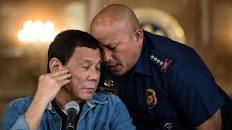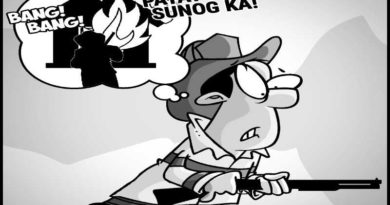Suggestions that the Department of Foreign Affairs and Trade is impeding or trying to censor an official history of Australia’s East Timor peacekeeping mission are disturbing but unsurprising.
They’re disturbing because good history must have as bedrock an independence from national reputation-shaping and political interference. The line between that and propaganda is fine.
But they are not a surprise because the department, its prominent Liberal ministers – not least Alexander Downer – and successive conservative governments have all spun like blazing Catherine wheels around the facts about Australian diplomatic sycophancy towards Indonesia over the country now known as Timor-Leste before, during and after the 1999 deployment.
The obfuscation – creating an impression Australia was the global hero of East Timor when it was bent on appeasing Indonesia while rebuffing calls for military action by the United States for most of 1999 – has never ceased, as evidenced by Downer’s recent reflections on the 20th anniversary of the Interfet deployment.
A cache of recently declassified American diplomatic and military cables further exposed the truth about Australia’s double-diplomatic game in the lead-up to, during and since the deployment.
The uncomfortable truth is that the Howard government was insisting only “rogue elements” of the Indonesian military were behind the pro-integration militias in East Timor that killed and wounded thousands around the time of the 1999 autonomy vote, when it was armed with intelligence to the contrary. Australia was a most reluctant peacekeeper and went into East Timor only after the US, having waved a big military and diplomatic stick at Jakarta, enabled it to do so.
Australia, under the Howard government, was at once resisting US pressure to act decisively, militarily, while simultaneously affording Indonesia repeated diplomatic outs for the violence that its military, TNI, was actively orchestrating in East Timor.
 Ads by: Memento Maxima Digital Marketing
Ads by: Memento Maxima Digital Marketing
@ [email protected]
– SPACE RESERVE FOR YOUR ADVERTISEMENT
– SPACE RESERVE FOR YOUR ADVERTISEMENT
.
.
Craig Stocking is the lead historian on the East Timor project. He has a reputation for rigorous research, lucid writing and, now (after a weekend Nine Newspapers report), for resisting bureaucratic and political pressure to temper criticisms of Dfat and the Howard government over its approach to East Timor.
It is standard for departments to read official histories before publication to avoid inaccuracy.
The Nine article, however, suggested Stocking – whose draft East Timor history is said to be some 400,000 words long – was incensed to the point of resignation over pressure to water down revelations about the actions of Australian officials and the Indonesian military during the Interfet deployment.
It is not the first time an eminent historian has faced considerable pressure to temper public criticism of the Dfat and Howard-Downer record on East Timor.
In 2004 the Defence department invoked national security and information secrecy laws in an attempt to prevent another historian, Clinton Fernandes, from publishing Reluctant Saviour, his book that was highly critical of the approach of Downer and Dfat in the lead up to and during the East Timor crisis.
Throughout the East Timor crisis, the federal government and Downer were infuriated by a series of leaks of classified documents highlighting Australia’s duplicity on East Timor and its difference of approach – and conflict over the same – with the US.
Indeed, in the cache of recently declassified US documents was a cable showing that a priority in Canberra for the Australian foreign minister was managing potential embarrassing perceptions in Washington media and political circles of suggestion of a US-Australia rift on peacekeeping or anything else.
Journalists who pursued the truth were denigrated in Australia and Washington.
And the truth was and is that Australia was fixed on managing diplomatic perceptions while the Indonesian-controlled militias were killing hundreds and preparing to torch Dili.
A pretty story, it ain’t.
No wonder Dfat is exercised, even if Downer these days may not be.
Yesterday he tweeted that the foreign minister, Marise Payne, “should allow publication of the official history of Interfet. I was the foreign minister at the time and the story should be told”.
Dfat has a long, ignoble history of concealing its insights into Indonesian atrocities in East Timor post-1975 in the name of good relations with Jakarta. The latest is part of that pattern.
Meanwhile, it’s worth remembering official historians have long come under pressure to exclude unsavoury events from the public record.
When writing the official history of the Australians in the Middle East during world war one, Henry Gullett resisted pressure, including from the esteemed general Harry Chauvel, to exclude a massacre in December 1918 in which Anzac and Scottish troops massacred every Arab man and boy aged over 16 in the Palestinian village of Surafend.
Chauvel, the ultimate commander of those troops, later wrote: “There are a few ‘incidents’ in the Australian official history. I would miss out anything about the Surafend affair. It should never have been mentioned in the Australian Official History …”
But thanks to Gullett it’s on the record.
Just as the full story of Australia in East Timor should be in the official version.
Good history demands no less.
 Ads by: Memento Maxima Digital Marketing
Ads by: Memento Maxima Digital Marketing
@ [email protected]
– SPACE RESERVE FOR YOUR ADVERTISEMENT
– SPACE RESERVE FOR YOUR ADVERTISEMENT
.
.
Since you’re here…
… we’re asking readers like you to make a contribution in support of our open, independent journalism. In these frightening and uncertain times, the expertise, scientific knowledge and careful judgment in our reporting has never been so vital. No matter how unpredictable the future feels, we will remain with you, delivering high quality news so we can all make critical decisions about our lives, health and security. Together we can find a way through this.
You’ve read 7 articles in the last four months. We believe every one of us deserves equal access to accurate news and calm explanation. So, unlike many others, we made a different choice: to keep Guardian journalism open for all, regardless of where they live or what they can afford to pay. This would not be possible without the generosity of readers, who now support our work from 180 countries around the world.
We have upheld our editorial independence in the face of the disintegration of traditional media – with social platforms giving rise to misinformation, the seemingly unstoppable rise of big tech and independent voices being squashed by commercial ownership. The Guardian’s independence means we can set our own agenda and voice our own opinions. Our journalism is free from commercial and political bias – never influenced by billionaire owners or shareholders. This makes us different. It means we can challenge the powerful without fear and give a voice to those less heard.
Your financial support has meant we can keep investigating, disentangling and interrogating. It has protected our independence, which has never been so critical. We are so grateful.
We need your support so we can keep delivering quality journalism that’s open and independent. And that is here for the long term. Every reader contribution, however big or small, is so valuable. Support the Guardian from as little as $1 – and it only takes a minute. Thank you.
 Ads by: Memento Maxima Digital Marketing
Ads by: Memento Maxima Digital Marketing
@ [email protected]
– SPACE RESERVE FOR YOUR ADVERTISEMENT
– SPACE RESERVE FOR YOUR ADVERTISEMENT
.
.













Video shows tender goodbye between dying former Indonesian president and Timor-Leste leader
Former Timor Leste president Xanana Gusmão hugs BJ Habibie, whose actions paved the way to independence
Postcolonial
– Paul Daley
Good history demands the full and uncomfortable story be in the official account
Suggestions that the Department of Foreign Affairs and Trade is impeding or trying to censor an official history of Australia’s East Timor peacekeeping mission are disturbing but unsurprising.
They’re disturbing because good history must have as bedrock an independence from national reputation-shaping and political interference. The line between that and propaganda is fine.
But they are not a surprise because the department, its prominent Liberal ministers – not least Alexander Downer – and successive conservative governments have all spun like blazing Catherine wheels around the facts about Australian diplomatic sycophancy towards Indonesia over the country now known as Timor-Leste before, during and after the 1999 deployment.
The obfuscation – creating an impression Australia was the global hero of East Timor when it was bent on appeasing Indonesia while rebuffing calls for military action by the United States for most of 1999 – has never ceased, as evidenced by Downer’s recent reflections on the 20th anniversary of the Interfet deployment.
A cache of recently declassified American diplomatic and military cables further exposed the truth about Australia’s double-diplomatic game in the lead-up to, during and since the deployment.
The uncomfortable truth is that the Howard government was insisting only “rogue elements” of the Indonesian military were behind the pro-integration militias in East Timor that killed and wounded thousands around the time of the 1999 autonomy vote, when it was armed with intelligence to the contrary. Australia was a most reluctant peacekeeper and went into East Timor only after the US, having waved a big military and diplomatic stick at Jakarta, enabled it to do so.
Australia, under the Howard government, was at once resisting US pressure to act decisively, militarily, while simultaneously affording Indonesia repeated diplomatic outs for the violence that its military, TNI, was actively orchestrating in East Timor.
@ [email protected]
– SPACE RESERVE FOR YOUR ADVERTISEMENT
Craig Stocking is the lead historian on the East Timor project. He has a reputation for rigorous research, lucid writing and, now (after a weekend Nine Newspapers report), for resisting bureaucratic and political pressure to temper criticisms of Dfat and the Howard government over its approach to East Timor.
It is standard for departments to read official histories before publication to avoid inaccuracy.
The Nine article, however, suggested Stocking – whose draft East Timor history is said to be some 400,000 words long – was incensed to the point of resignation over pressure to water down revelations about the actions of Australian officials and the Indonesian military during the Interfet deployment.
It is not the first time an eminent historian has faced considerable pressure to temper public criticism of the Dfat and Howard-Downer record on East Timor.
In 2004 the Defence department invoked national security and information secrecy laws in an attempt to prevent another historian, Clinton Fernandes, from publishing Reluctant Saviour, his book that was highly critical of the approach of Downer and Dfat in the lead up to and during the East Timor crisis.
Throughout the East Timor crisis, the federal government and Downer were infuriated by a series of leaks of classified documents highlighting Australia’s duplicity on East Timor and its difference of approach – and conflict over the same – with the US.
Indeed, in the cache of recently declassified US documents was a cable showing that a priority in Canberra for the Australian foreign minister was managing potential embarrassing perceptions in Washington media and political circles of suggestion of a US-Australia rift on peacekeeping or anything else.
Journalists who pursued the truth were denigrated in Australia and Washington.
And the truth was and is that Australia was fixed on managing diplomatic perceptions while the Indonesian-controlled militias were killing hundreds and preparing to torch Dili.
A pretty story, it ain’t.
No wonder Dfat is exercised, even if Downer these days may not be.
Yesterday he tweeted that the foreign minister, Marise Payne, “should allow publication of the official history of Interfet. I was the foreign minister at the time and the story should be told”.
Dfat has a long, ignoble history of concealing its insights into Indonesian atrocities in East Timor post-1975 in the name of good relations with Jakarta. The latest is part of that pattern.
Meanwhile, it’s worth remembering official historians have long come under pressure to exclude unsavoury events from the public record.
When writing the official history of the Australians in the Middle East during world war one, Henry Gullett resisted pressure, including from the esteemed general Harry Chauvel, to exclude a massacre in December 1918 in which Anzac and Scottish troops massacred every Arab man and boy aged over 16 in the Palestinian village of Surafend.
Chauvel, the ultimate commander of those troops, later wrote: “There are a few ‘incidents’ in the Australian official history. I would miss out anything about the Surafend affair. It should never have been mentioned in the Australian Official History …”
But thanks to Gullett it’s on the record.
Just as the full story of Australia in East Timor should be in the official version.
Good history demands no less.
@ [email protected]
– SPACE RESERVE FOR YOUR ADVERTISEMENT
Since you’re here…
… we’re asking readers like you to make a contribution in support of our open, independent journalism. In these frightening and uncertain times, the expertise, scientific knowledge and careful judgment in our reporting has never been so vital. No matter how unpredictable the future feels, we will remain with you, delivering high quality news so we can all make critical decisions about our lives, health and security. Together we can find a way through this.
You’ve read 7 articles in the last four months. We believe every one of us deserves equal access to accurate news and calm explanation. So, unlike many others, we made a different choice: to keep Guardian journalism open for all, regardless of where they live or what they can afford to pay. This would not be possible without the generosity of readers, who now support our work from 180 countries around the world.
We have upheld our editorial independence in the face of the disintegration of traditional media – with social platforms giving rise to misinformation, the seemingly unstoppable rise of big tech and independent voices being squashed by commercial ownership. The Guardian’s independence means we can set our own agenda and voice our own opinions. Our journalism is free from commercial and political bias – never influenced by billionaire owners or shareholders. This makes us different. It means we can challenge the powerful without fear and give a voice to those less heard.
Your financial support has meant we can keep investigating, disentangling and interrogating. It has protected our independence, which has never been so critical. We are so grateful.
We need your support so we can keep delivering quality journalism that’s open and independent. And that is here for the long term. Every reader contribution, however big or small, is so valuable. Support the Guardian from as little as $1 – and it only takes a minute. Thank you.
@ [email protected]
– SPACE RESERVE FOR YOUR ADVERTISEMENT